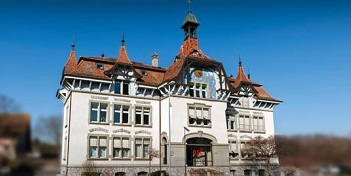Esta web utiliza cookies para que podamos ofrecerte la mejor experiencia de usuario posible. La información de las cookies se almacena en tu navegador y realiza funciones tales como reconocerte cuando vuelves a nuestra web o ayudar a nuestro equipo a comprender qué secciones de la web encuentras más interesantes y útiles.
SDG Explorer - a new course on sustainability using SDGs as a guide
Description
Institution
Organizations/areas of the university involved
A compulsory new course for all first-year bachelor students in business (BBA)
Country
Switzerland
The main purpose of this course is to help all first-year bachelor students in business (BBA) understand the importance and relevance of sustainability to them personally, both as individual citizens and future company executives. This understanding should be seen in the broader context of institutions engaged in sustainability, including companies, governments, and international organizations – all of which use SDGs.
SDGs were used a “guide” to the main topics of environmental and social sustainability, for a number of reasons: (a) SDGs represent a broad consensus on which topics are seen as important, building on the successful MDGs; (b) The language of SDGs is broadly adopted by leading companies, governments and NGOs, and proficiency in this language is important for our students whatever profession they choose; (c) Good quality data and relevant information is available, from highly credible sources such as the UN, the World Bank etc.; and (d) Deep understanding of SDGs is seen as an advantage in the jobs market, including for internships.
SDGs were used as a framework to prepare the syllabus, as required readings to prepare each class, as a structure for students to submit written assignments or present company cases in-class. Each session was focused on one or more SDGs, around which discussions, team work, role plays, presentations, computer simulations, personal sustainability assessments etc. were organized.
Results and impact measured or expected
When covering topics as broad as SDGs on sustainability in general, it is easy to get lost in details. From our experience, focusing on a limited number on main topics, and finding a way to personally engage every student were key to success. A list of 8 learning objectives was established, with each class focusing on one or two of them, structured to ensure varied repetition, for example covering the same topic from different perspectives as pre-course reading, short written submission, a brief video, class discussion, and team-based presentation or competition. The repetition ensures learning, while the variation of methods ensures students remain engaged, and students with different interests and personalities all get involved. Progress in reaching the learning objectives was regularly monitored throughout the course.
Overall almost all students reached a much more mature understanding of sustainability and a working knowledge of SDGs.
Barriers and follow up
Overall our approach worked well from the beginning. Perhaps the main difficulty was getting the students to learn a lot of material in a short time. Sustainability if a highly complex subject, as it covers everything from physics, energy and biology to complex adaptive systems, economics and sociology. To make the best use of limited class time, students were required to prepare each week’s topic by reading 30-70 pages, often original sources, and writing a short summary. It was a challenge to engage every student and motivate them to do the homework. We overcame this barrier by focusing on less topics and spending more time on each, ensuring students understood the relevance of the particular aspect of sustainability and SDGs to them personally.
Education 4 SDG funciona gracias a WordPress

